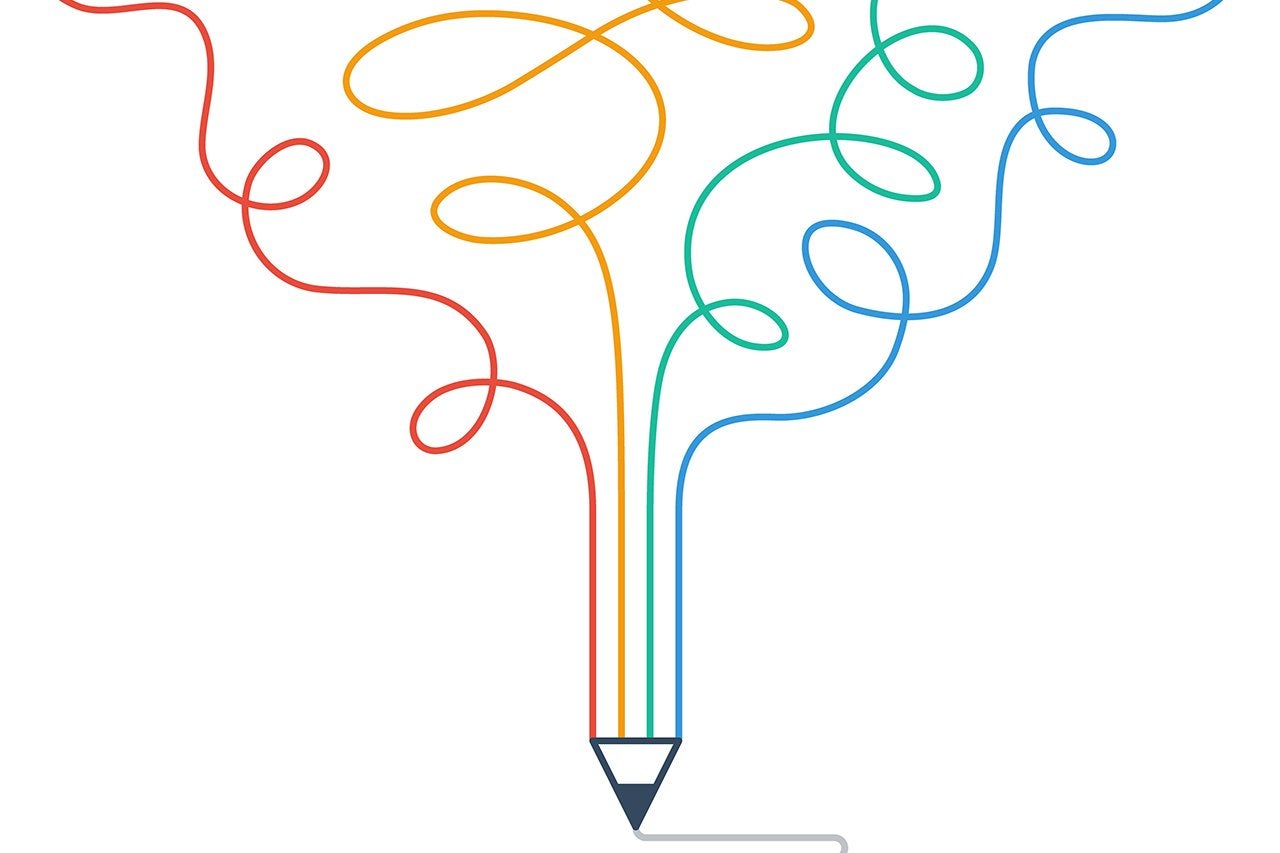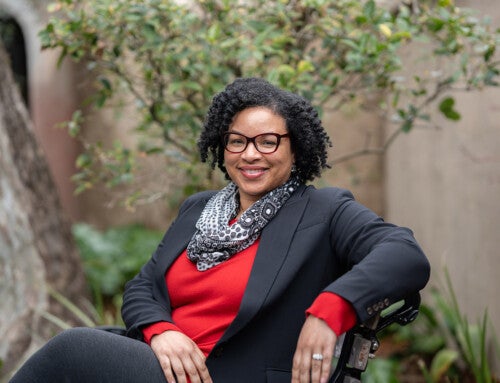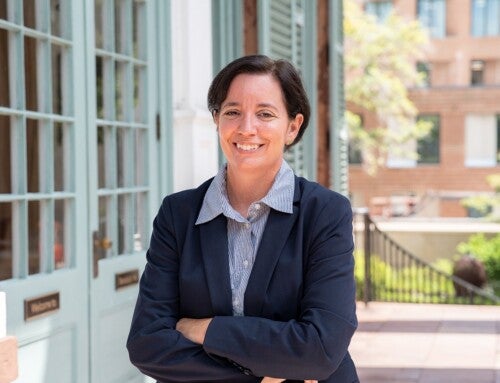In line with the College of Charleston’s strategic plan to “invest in faculty and staff learning and development to foster professional growth, leadership and lifelong learning,” the College formed the Center for Excellence in Teaching and Learning in 2021. Since then, CETL has become an invaluable hub of resources for faculty with workshops, presentations, small group seminars and academic coaching.
The College has expanded its resources for faculty by becoming an institutional member of the National Center for Faculty Development and Diversity, an independent professional development, training and mentoring community of faculty, postdocs and graduate students from more than 450 colleges and universities. Housed under CETL, NCFDD helps academics thrive in the collegiate environment.
RELATED: Learn more about the College’s Center for Excellence in Teaching and Learning.

Margaret Hagood, professor of teacher education and director of the College’s new Center for Excellence in Teaching and Learning
“Having the opportunity to network among other higher education institutions can be a career changer,” says Margaret Hagood, CETL director and professor of teacher education. “Research and writing can be very isolating. What I love about NCFDD is that it helps faculty connect with others, making the research and writing experience of individual work more collaborative.”
Shannon Eaves, assistant professor of history, knows the value of the NCFDD program well, having maintained a personal membership for several years before the College became an institutional member.
“In summer 2019, I participated in the intensive, 12-week Faculty Success Program from the National Center for Faculty Diversity and Development,” says Eaves. “The program curriculum covered the importance of creating a strategic plan, holding weekly scheduling meetings, developing a mentoring network on and outside of your home institution, managing time, developing a daily writing practice and prioritizing self-care.
“The Faculty Success Program was truly a life-changing experience,” she adds. “Through establishing a daily writing practice, I wrote and revised my book manuscript. To date, I continue to participate in the Faculty Success Alumni Program, which provides continued support for maintaining a daily writing practice and strategic planning.”
In partnership with CETL, the academic deans and the Office of the Provost selected 12 CofC faculty members – including tenure-track assistant professors in their third to fifth years who are working on research projects, as well as tenured associate professors who are engaged in their projects for promotion to full professor – to participate in the Faculty Success Program this summer. Those faculty include:
- LIBR – Gretchen Scronce, Librarian II, Research & Instruction Librarian and Virtual Service Coordinator
- SOTA – Nakeisha Nicole Daniel, Assistant Professor, Department of Theatre and Dance
- BUS – Chris Mothorpe, Associate Professor and Department Chair, Department of Economics
- BUS – Rafael Teixeira, Assistant Professor, Department of Supply Chain & Information Mgt
- BUS – Kimberly Jane Tribou, Assistant Professor, Department of Accounting & Business Law
- HSS – Julia M. Arroyo, Assistant Professor, Department of Anthropology & Sociology
- HSS – Hyokyung Kwak, Assistant Professor, Department of Political Science
- HSS – John Thomas III, Assistant Professor, Department of Political Science
- SSME – Yu Gong, Assistant Professor, Department of Physics & Astronomy
- SHS – John Sieverdes, Assistant Professor, Department of Health & Human Performance
- SOE – Brian Lanahan, Associate Professor, Department of Teacher Education
- LCWA – Margaret Keneman, Assistant Professor, Dept of French, Francophone, & Italian Studies
“The Faculty Success Program puts faculty in a place where they’re walking alongside others who are experiencing the same things they are every single day,” says Hagood, adding that the two-week NCFDD Writing Challenge also creates a supportive environment for faculty members. “Knowing that writing is hard for everyone can really ease the doubt that we all get when we sit down to write. Having a community of people going through the same thing can be a relief.”
Currently, 38 CofC faculty members are participating in the 30-minutes-a-day challenge, which assigns participants to a small group of institutional members from around the country to encourage and support them as they work on their own daily writing goals.
Programs like the Faculty Success Program and the Writing Challenge are core to NCFDD’s efforts to ensure faculty have the key skills and strategies for a sustainable and successful career. NFCDD utilizes different channels like the Monday Motivator, the Buddy Match program for writing accountability and Professor-ing Podcast for faculty to learn about a variety of topics, — from work-life balance to social media. Everything focuses on helping academics achieve writing and research productivity while maintaining a full and healthy life off campus.
“I am happy to see that NCFDD is already making an impact at the College,” says Suzanne Austin, executive vice president for academic affairs and provost. “NCFDD builds on what CETL offers and gives our faculty access to a community of academics from more than 450 institutions. Having that support will help our faculty develop both professionally and personally.”





